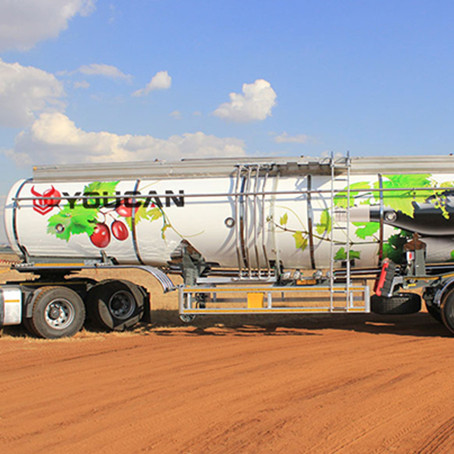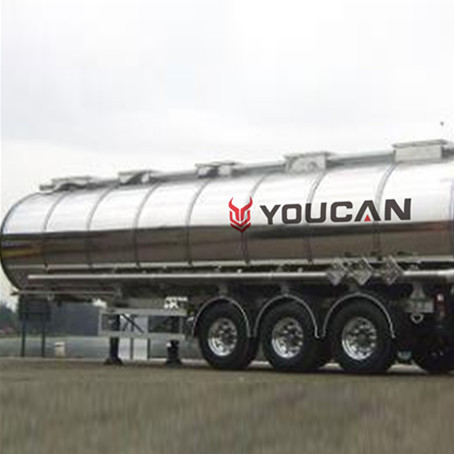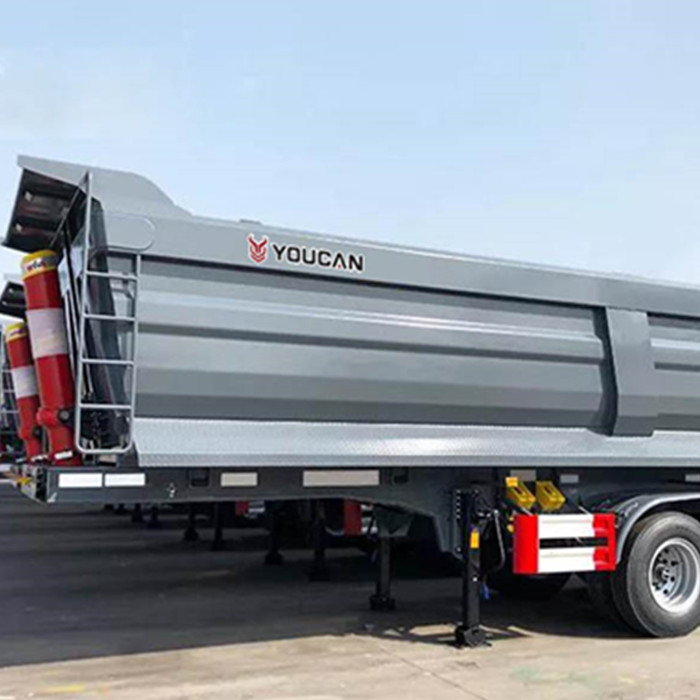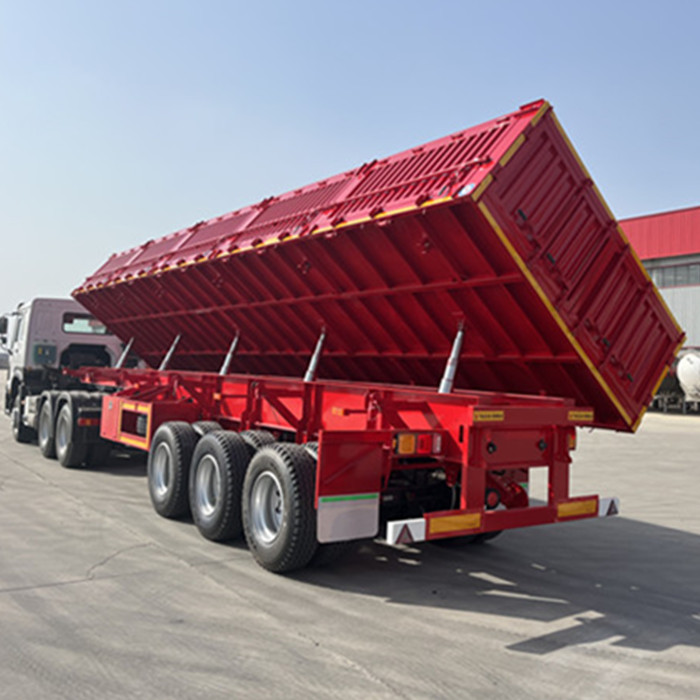Different types of commercial tanker trailes food, petroleum, pneumatic, and chemical
Food oil tanker
Food carriers are relied upon by the food and beverage industry to transport large quantities of consumables from production sources to processing plants. These types of tankers are cylindrical and made of stainless steel. Typically, the tank is divided into compartments so that various liquids can be transported under the same load.

Since food tankers are designed and used to transport liquid food that will later be eaten, they are usually insulated and have temperature control options. The most common load of these tankers is milk, however, food tankers also carry:
Liquid dairy product
Fruit juice
alcohol
Vegetable oil
vinegar
Corn syrup
Sugar alcohol
Food carriers must comply with strict hygiene regulations and other requirements when transporting liquid food.
Food tanker regulations
Tanks need to be endorsed on your Commercial Driver's License (CDL)
Point 406
Food and Drug Administration Health and Transportation Regulations
Clean according to the Transport Equipment Cleaning (TEC) Sewage Guidelines and Standards (40 CFR Part 442)
The maximum capacity depends on the location
tanker
Because of the dangerous and very necessary job of transporting a variety of fuels, tankers usually have multiple compartments in cylindrical tanks. Separate compartments not only allow multiple types of fuel to be carried in one tank, but also improve vehicle safety by preventing liquid surges from occurring.
Within each compartment, there are baffles, which act as diaphragms with holes to allow liquid to pass through. These baffles help reduce cargo movement and control any liquid surge. The oil and gas industry relies heavily on oil tankers or diesel tankers designed to transport petroleum derived products such as:
gasoline
diesel
ethanol
Jet fuel
All these products are dangerous, which is why these tankers need to follow the regulations strictly.
Oil truck regulations
Tanks need to be endorsed on your Commercial Driver's License (CDL)
Point 406
Specific hazardous material regulations must be observed
Clean according to the Transport Equipment Cleaning (TEC) Sewage Guidelines and Standards (40 CFR Part 442)
The maximum capacity depends on the location
Dry bulk carrier
Dry bulk tank cars, also known as pneumatic tank cars, are vacuum-sealed metal cylinders with conical hoppers at the bottom and openings at the top and rear. Most of these tankers are made of aluminum or steel in individual compartments with a capacity of 560 to 3,120 cubic feet of product. Pneumatic tankers are used in a variety of industries including construction, food and industrial manufacturing and transporting goods such as:
Building materials like sand and cement
Dry foods such as sugar, flour and starch
Chemical powder
Plastic particles
The ability to unload cargo using compressed air makes this type of tanker useful for transporting fine powder. The convenience of loading and unloading of dry bulk tankers is one of their main advantages and contributes to cost saving. In addition, the tightness of the tank allows the product to avoid contamination and moisture.

Dry bulk tanker Regulations
Tanks need to be endorsed on your Commercial Driver's License (CDL)
Point 406
Clean according to the Transport Equipment Cleaning (TEC) Sewage Guidelines and Standards (40 CFR Part 442)
The maximum capacity depends on the location
Chemical carrying vessel
Another type of cylindrical, horizontally placed tank used to transport goods is the chemical tank truck, which is used to transport chemicals, flammable products, and corrosive materials. These tankers range in length from 42 feet to 45 feet and are usually made of stainless steel. However, in the case of corrosive products, the tank is composed of fiberglass reinforced plastic (FRP).
The capacity of a chemical tanker is measured in terms of its available volume, which typically ranges from 5,500 to 11,600 gallons. This type of tanker is commonly used for industrial transport of manufacturing materials. The general cargo carried by chemical tankers includes:
ammonia
chlorine
Hydrogen fluoride
Because most industrial chemicals pose health or physical hazards, these types of tankers are subject to additional regulations.
Regulations for chemical carriers
Tanks need to be endorsed on your Commercial Driver's License (CDL)
Point 407
Clean according to the Transport Equipment Cleaning (TEC) Sewage Guidelines and Standards (40 CFR Part 442)
Specific hazardous material regulations must be observed
Other types of tankers
In addition to these four types of tank truck trailers, there are others including agricultural tank trucks, water tank trucks, compressed natural gas tank trucks, asphalt tank trucks. Depending on the job at hand, there is a type of tanker that would be perfect for it.
How much do aluminum fuel tanker trailers cost?
Youcan Trailer is a professional semi-trailer manufacturer founded in the year 1999. The company provides tank trailers, bulk cement semi-trailers, Tipper semi-trailers, stake storage semi-trailers, flatbed semi-trailers, low-bed semi-trailers, container carrier trailers, cargo semi-trailers, and other hundreds of products.If you are interested in buying a Container Chassis for you project, feel free to send an inquiry.

 WhatsApp
WhatsApp
 sales@youcantrailer.com
sales@youcantrailer.com
 +8615203709888
+8615203709888


